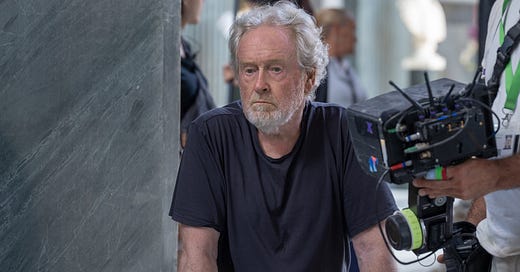Ridley Scott Is a Businessman
In a battle between art and commerce, the director frequently opts for the latter.
When producer and director Ridley Scott was doing press for his movie Exodus: Gods and Kings, he was asked why he assembled a largely white cast to play Middle Eastern characters given the “more realistic” approach he was taking to the Exodus story. Scott told Variety:
“I can’t mount a film of this budget, where I have to rely on tax rebates in Spain, and say that my lead actor is Mohammad so-and-so from such-and-such,” Scott says. “I’m just not going to get it financed. So the question doesn’t even come up.”
Scott drew flack for his remarks, but this is in keeping with Scott’s vision of his work as someone who wants to mount the production and will sacrifice artistic vision if it means completing the movie. Exodus: Gods and Kings was supposed to be a more historically accurate version than previous adaptations of Exodus. But that historical accuracy went out the window when it jeopardized getting the movie financed (or at least challenged how much Scott was willing to fight for Middle Eastern, North African actors who didn’t have the name recognition of…Joel Edgerton).
The director’s compromises were on my mind recently after seeing Gladiator II. The concept of a Gladiator sequel isn’t new, and there was a fascinating script by Nick Cave that would have used a resurrected Maximus (Russell Crowe) as a vehicle to explore the Romanization of Christianity. However, the finished feature has an interesting core concept that frequently emerges in Scott’s recent work—The Death of Empires. Scott does not tolerate fools, and his recent output—Napoleon, The Last Duel, and House of Gucci—tends to highlight powerful idiots.
Keep reading with a 7-day free trial
Subscribe to Commentary Track to keep reading this post and get 7 days of free access to the full post archives.





